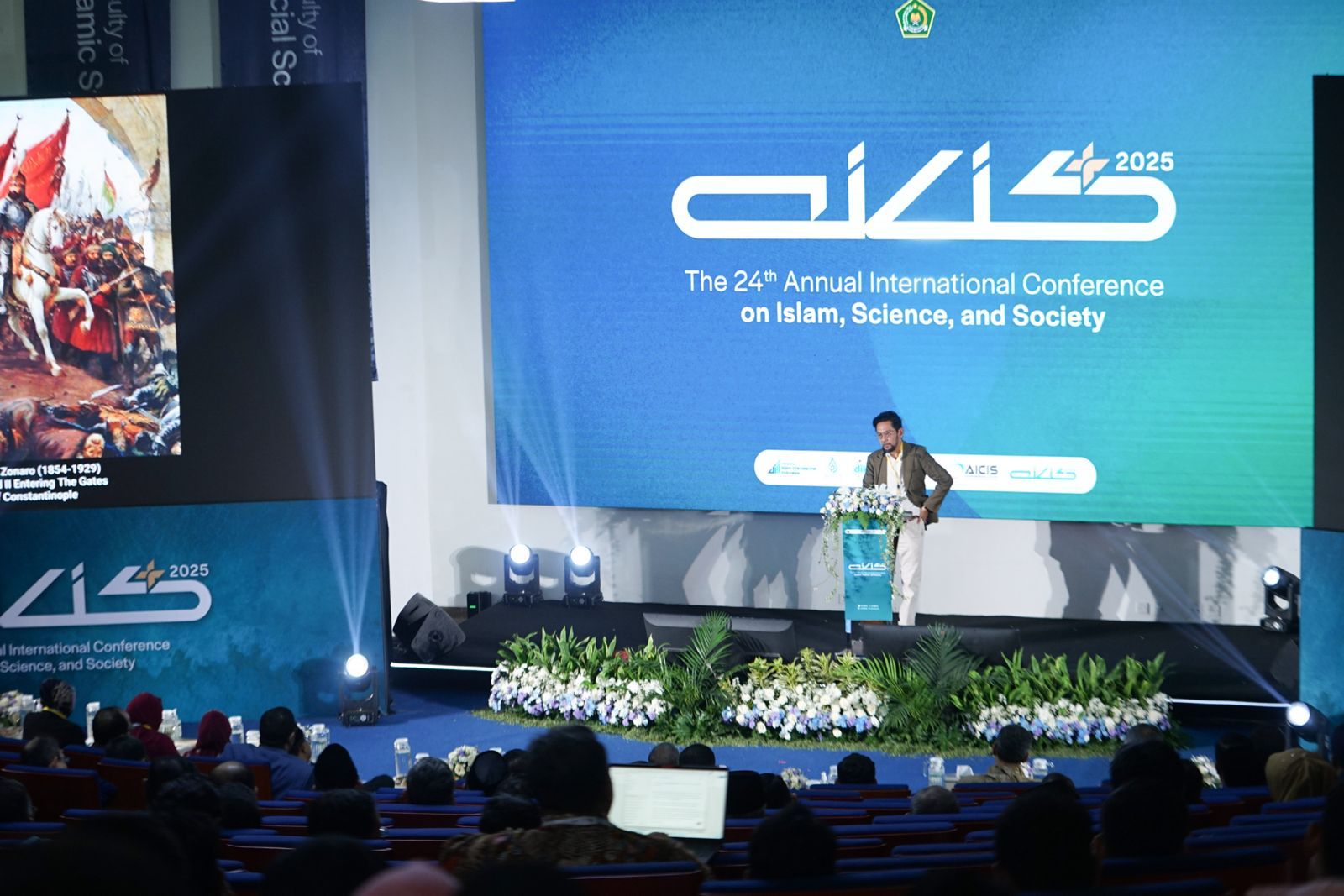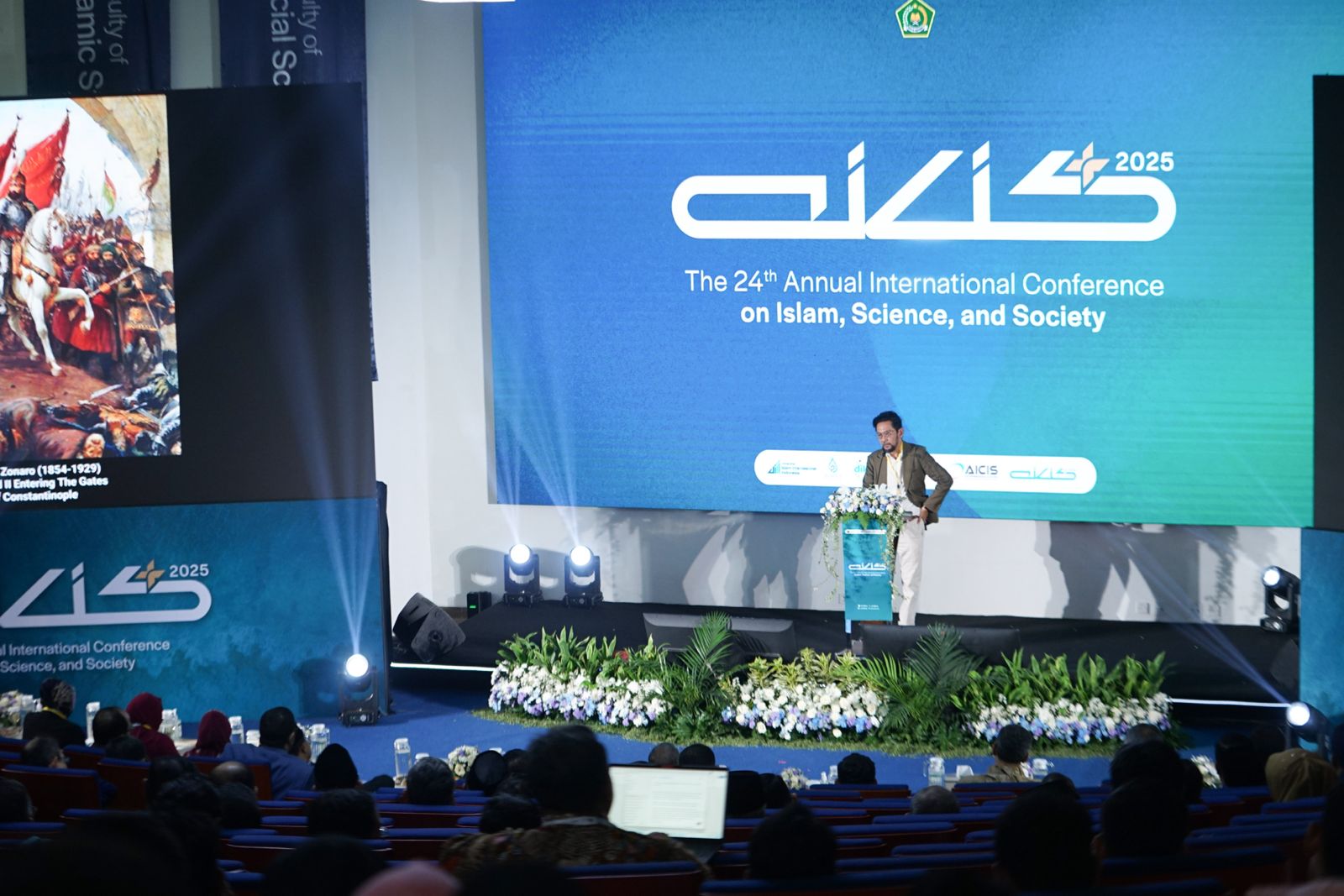November 3, 2025
Contributor: Supriyono | Photo: Achmad Jatnika

The Annual International Conference on Islam, Science and Society (AICIS+) 2025 at Universitas Islam Internasional Indonesia (UIII) opened with a powerful keynote address by Prof. Farish A. Noor, a political historian from Malaysia and faculty member at UIII, who challenged scholars to critically examine the historical and epistemological roots of Islamic Studies — a field he described as “born within the logic of empire.”
“Let us be clear,” he began, “there is an enormous difference between Muslims studying Islam, and Islam being studied.”
Prof. Farish traced the genealogy of Islamic Studies as an academic field, arguing that its emergence was inseparable from colonial and Western epistemological frameworks. “Islamic Studies did not start in China, Africa, or India. It started in the West — as part of the West’s attempt to know, govern, and sometimes colonize the Muslim world,” he asserted.
To illustrate this, he revisited texts such as The History of Java by Thomas Stamford Raffles, noting how early colonial scholarship framed Islam as the cause of “backwardness” among Javanese society. “The tools we use today — sociology, anthropology, political science — were once used to justify control and colonization. We cannot be blind to this legacy,” he cautioned.
Throughout his speech, Prof. Farish used the striking 19th-century painting Muhammad II Entering Constantinople by Fausto Zonaro as a metaphor. He described it as “an image of arrest” — one that captures how the Muslim world has been historically frozen into a monolithic identity. “The Muslim remains fixed, confined within Islamic Studies,” he said, introducing the philosophical concept of “epistemic arrest,” where knowledge production perpetuates stereotypes rather than liberates understanding.
 But the keynote was not merely a critique of the past; it was also a call to renewal. Prof. Farish urged scholars to push Islamic Studies beyond its traditional boundaries by engaging with pressing global realities — technology and the environment — which, he argued, profoundly shape the Muslim world today.
But the keynote was not merely a critique of the past; it was also a call to renewal. Prof. Farish urged scholars to push Islamic Studies beyond its traditional boundaries by engaging with pressing global realities — technology and the environment — which, he argued, profoundly shape the Muslim world today.
“It is not an accident that AICIS+ brings together Islamic Studies, environment, and technology,” he said. “These are our realities now. The South — the Muslim world — bears the heaviest cost of environmental destruction and technological domination.”
He warned that Muslim societies risk being reduced to “algorithms” in a world ruled by big tech and data capitalism, becoming “commodified objects of a virtual universe” that profits from images of Muslim suffering. “The Muslim world today is an algorithm,” he remarked sharply. “And we must ask — who programs it?”
On environmental challenges, Prof. Farish highlighted that climate change poses existential threats to Muslim-majority nations in the Global South — from Indonesia and the Maldives to Bangladesh. “No foreign army can erase your islands, but climate change will,” he said. “These are not abstract issues. They are our lived realities.”
While acknowledging that Islamic Studies has inherited “tainted tools” from colonial academia, he argued against abandoning them. Instead, he called for “historical literacy” — a critical awareness of how knowledge systems were built — to repurpose these tools for emancipation and self-understanding.
“We need to study Islamic Studies itself,” he urged. “To ask how it started, why it took the shape it has, and how we might reimagine it — not as a fixed field, but as a dynamic space that interrogates power, history, and humanity.”
Prof. Farish concluded with a hopeful vision for transformation: “AICIS+ 2025 marks a rupture — a moment to recouple Islamic Studies with technology and environmental consciousness, to move from being mere subjects of study to active producers of knowledge.”
As the conference continues, his keynote sets a reflective tone for scholars, inviting them to see Islamic Studies not just as a lens to examine Islam — but as a mirror to question the world and their own place within it.
Universitas Islam Internasional Indonesia